In its introduction the BBC describes the industry of race and diversity as an exercise to get Britain’s different ethnic groups to understand and tolerate each other better. The BBC programme ‘the business of race’ produced for Radio 4 by Jolyon Jenkins, Nicola West and presented by the Asian presenter and researcher in cultural policy Munira Mirza attempts to prove using African people as the scapegoats that diversity training is an ‘unwittingly divisive influence’ introducing more problems than it solves.

The programme starts off by investigating the quality of customer services towards Asian customers by using a mystery shopper and reporting on research from a diversity consultant to establish the current motivation driving diversity training. Munira Mirza explains that public sectors bodies engage in diversity training because the law obliges them to under race relation legislation. She continues by stating that private sector bodies do it to commercially exploit minority communities. The consultant states ‘you’ve got an enormous group of people of different ethnic backgrounds who you need to obviously make money from, if you can know more about them be more at ease at dealing with them you do so much better..”.
Diversity training is racist?
The programme then goes on to critise diversity training by importing US and UK critics asserting that it teaches generalities about minority communities. The outcomes of diversity training is described as being non-effectual, abusive and racist in its approach and in some cases guilty of engendering anti-African stereotypes. The presenter progresses her mono-culturalism agenda by attempting to discredit the successful ‘Blue eyes, brown eyes’ programme by Jane Elliot. In fact despite of the refusal of Elliot to grant an interview, the report goes on to depict the groundbreaking diversity course as an exaggeration of the conditions faced by African and oppressed people. The selected interviews included were deliberately designed to assassinate both Elliot’s character and her course. Mirza deliberately denigrates and dismisses the opinions of African people who participated in the course. Her characterisation of the course as sometimes describing ‘Alabama in the 1950’s rather that 21st century Britain’ is patronising, offensive and wholly disingenuous.
Militant Africans
The underlying subtext of her narration offensively presented African people as either militant or incapable of independent thought. A contributor named Natasha who stated she would be more inclined to challenge racist incidents was described by Mirza as ‘more’ militant. This of course is meant to be interpreted as more aggressive. This was juxtaposed with an interview with Sally, a liberal european who broke down in tears after feeling what she described as guilty, distressful and powerless for being an anti-racist who wasn’t doing enough. Mirza then introduced specific research conducted by Tracy Stewart in Georgia State University that set out to critise the brown eyes, blue eyes programme. Stewart claimed that she had found no statistically significant difference in the attitudes of people who participated with the programme towards African American people. She continued stating that the activity seemed to engender participants having a negative feeling towards themselves which if not countered with a productive outlet for change then could result in a backlash of victim blame.
Racism now exaggerated and unfounded
Mirza concludes her report stating that she believes Jane Elliot’s programme exaggerates the level of racism that African people experience today. She asserts that claims from the African community of shop keepers not placing money in their hands are unfounded, but conveniently states ‘white’ shopkeepers when the perpetrators of this particular phenomenon are overwhelmingly Asian. She cites an opinion poll as proof that these allegations are false and then calls for a ‘reality check’ with the mystery Asian mystery shopper in Leicester being asked if the failure to place money in the hands of customers is a racist action. His response is ‘too be perfectly honest I’ve been a mystery shopper for five years and I’ve never come across that… I wouldn’t have thought that a major issue’.
Contempt of African people
He misses the point. The BBC through this programme has announced its intent to introduce a paradigm shift of thought on the topic of diversity. With the pending abolishment of the Commission for Racial Equality there is now a national resurgence of diversity as the enemy which threatens the cohesiveness of the UK. The presenter, British Asian Munira Mirza is publicly known for her belief that racism is in decline. She believes that ‘as long as black people are assumed to have their 'own culture' they are denied recognition in the mainstream…’. Her loathing of multiculturalism is hardly an impartial and objective approach seeing she views the preservation of diverse cultural identities a barrier to her ideology of assimilation for commercial success.
The barely concealed contempt for African people was also on display. The inclusion of the shopkeeper allegations were a direct reference to October 2005’s Birmingham clashes. As with the biased reporting then, Asians presented in the report were being presented as the voice of progressive moderation, the African voices as the militant, irrational proponents of victim hood and self flagellation. Once again the BBC worked with Asian presenters to demonise the African British community, this time addressing their contempt to the Radio Four audience in the hope that no one would ask why there was no authoritative input from an African Briton.
Anti-African bias
This programme attempted to assert that diversity training is wrong, ineffective and useless. Its primary assertion was that racism in 21st century Britain doesn’t exist apart from in the minds of its typically African victims. However if the BBC was so sure about this being the truth then why did it not deploy a team of African Britons to produce, investigate and present the story? Equally as important, why did the BBC use Munira Mirza to head the report, when she is publicly known as a British Asian who openly has an anti-African bias?

External Links
BBC Radio 4 - The Business of Race

Diversity training is racist?
The programme then goes on to critise diversity training by importing US and UK critics asserting that it teaches generalities about minority communities. The outcomes of diversity training is described as being non-effectual, abusive and racist in its approach and in some cases guilty of engendering anti-African stereotypes. The presenter progresses her mono-culturalism agenda by attempting to discredit the successful ‘Blue eyes, brown eyes’ programme by Jane Elliot. In fact despite of the refusal of Elliot to grant an interview, the report goes on to depict the groundbreaking diversity course as an exaggeration of the conditions faced by African and oppressed people. The selected interviews included were deliberately designed to assassinate both Elliot’s character and her course. Mirza deliberately denigrates and dismisses the opinions of African people who participated in the course. Her characterisation of the course as sometimes describing ‘Alabama in the 1950’s rather that 21st century Britain’ is patronising, offensive and wholly disingenuous.
Militant Africans
The underlying subtext of her narration offensively presented African people as either militant or incapable of independent thought. A contributor named Natasha who stated she would be more inclined to challenge racist incidents was described by Mirza as ‘more’ militant. This of course is meant to be interpreted as more aggressive. This was juxtaposed with an interview with Sally, a liberal european who broke down in tears after feeling what she described as guilty, distressful and powerless for being an anti-racist who wasn’t doing enough. Mirza then introduced specific research conducted by Tracy Stewart in Georgia State University that set out to critise the brown eyes, blue eyes programme. Stewart claimed that she had found no statistically significant difference in the attitudes of people who participated with the programme towards African American people. She continued stating that the activity seemed to engender participants having a negative feeling towards themselves which if not countered with a productive outlet for change then could result in a backlash of victim blame.
Racism now exaggerated and unfounded
Mirza concludes her report stating that she believes Jane Elliot’s programme exaggerates the level of racism that African people experience today. She asserts that claims from the African community of shop keepers not placing money in their hands are unfounded, but conveniently states ‘white’ shopkeepers when the perpetrators of this particular phenomenon are overwhelmingly Asian. She cites an opinion poll as proof that these allegations are false and then calls for a ‘reality check’ with the mystery Asian mystery shopper in Leicester being asked if the failure to place money in the hands of customers is a racist action. His response is ‘too be perfectly honest I’ve been a mystery shopper for five years and I’ve never come across that… I wouldn’t have thought that a major issue’.
Contempt of African people
He misses the point. The BBC through this programme has announced its intent to introduce a paradigm shift of thought on the topic of diversity. With the pending abolishment of the Commission for Racial Equality there is now a national resurgence of diversity as the enemy which threatens the cohesiveness of the UK. The presenter, British Asian Munira Mirza is publicly known for her belief that racism is in decline. She believes that ‘as long as black people are assumed to have their 'own culture' they are denied recognition in the mainstream…’. Her loathing of multiculturalism is hardly an impartial and objective approach seeing she views the preservation of diverse cultural identities a barrier to her ideology of assimilation for commercial success.
The barely concealed contempt for African people was also on display. The inclusion of the shopkeeper allegations were a direct reference to October 2005’s Birmingham clashes. As with the biased reporting then, Asians presented in the report were being presented as the voice of progressive moderation, the African voices as the militant, irrational proponents of victim hood and self flagellation. Once again the BBC worked with Asian presenters to demonise the African British community, this time addressing their contempt to the Radio Four audience in the hope that no one would ask why there was no authoritative input from an African Briton.
Anti-African bias
This programme attempted to assert that diversity training is wrong, ineffective and useless. Its primary assertion was that racism in 21st century Britain doesn’t exist apart from in the minds of its typically African victims. However if the BBC was so sure about this being the truth then why did it not deploy a team of African Britons to produce, investigate and present the story? Equally as important, why did the BBC use Munira Mirza to head the report, when she is publicly known as a British Asian who openly has an anti-African bias?

External Links
BBC Radio 4 - The Business of Race
Ligali is not responsible for the content of third party sites
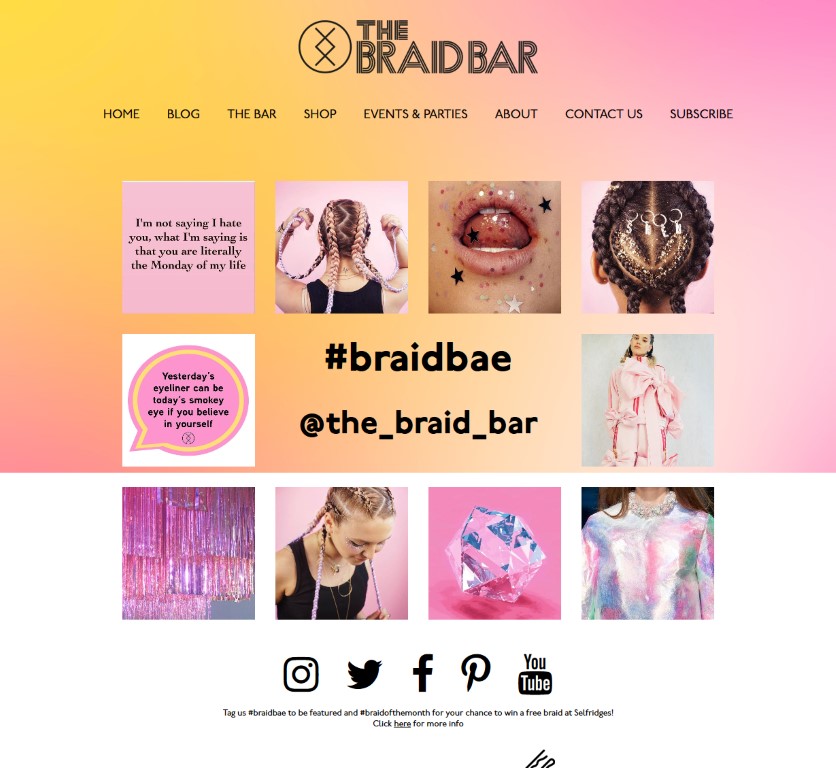
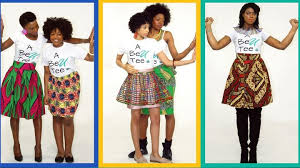
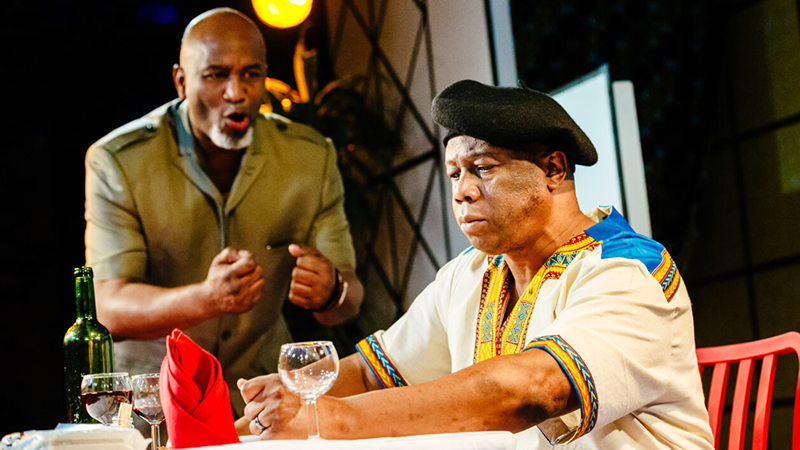
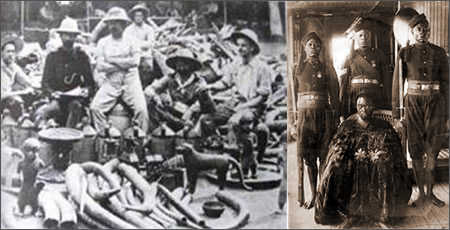
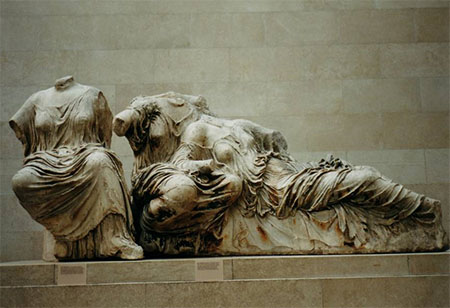
Get involved and help change our world